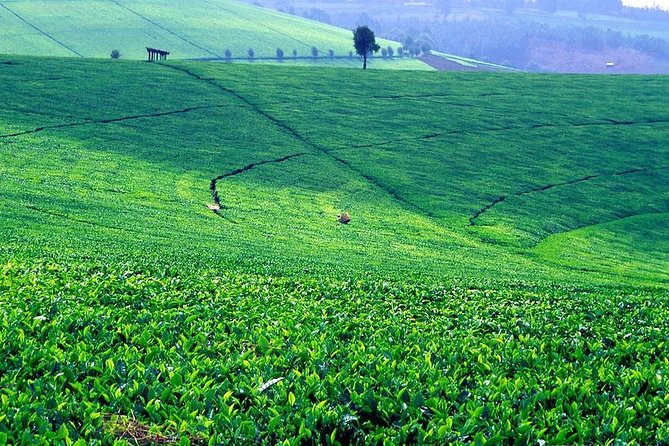The Tea Board of Kenya is a crucial entity within the Kenyan agricultural landscape, tasked with the regulation, promotion, and development of the country’s tea industry. As a state corporation under the Ministry of Agriculture and Livestock Development, it was established by the Tea Act No. 23 of 2020, taking over roles previously overseen by the now-defunct Tea Directorate.
Kenya is one of the world’s largest producers and exporters of tea, and the Tea Board plays a pivotal role in ensuring the sustainability, profitability, and growth of this sector. Below are the key functions of the Tea Board of Kenya.
1. Guiding Development and Regulation of the Tea Industry
The Tea Board of Kenya is tasked with providing direction and oversight in the development, regulation, and promotion of the tea sub-sector. This function ensures that tea growers and other stakeholders within the tea value chain benefit from a well-regulated and thriving industry.
2. Coordination of Industry Stakeholders
The Board coordinates the activities of all individuals and organizations involved in the tea sector, including growers, manufacturers, marketers, brokers, and buyers. This coordination ensures that there is harmony in the operations within the industry and helps to mitigate any challenges that could arise from misaligned interests.
3. Ensuring Equitable Access to Resources
The Tea Board facilitates equitable access to resources and benefits for all players in the tea industry, ensuring that small-scale farmers, large producers, exporters, and local tea sellers have a fair share of resources and market opportunities.
4. Policy Formulation and Strategic Planning
The Tea Board advises on the formulation of policies, strategies, and plans aimed at regulating and improving the tea sub-sector. It plays a significant role in making recommendations that affect legislation, marketing strategies, and industry operations, thereby shaping the future of the tea industry.
5. Registration of Industry Participants
One of the primary regulatory roles of the Tea Board is to register all stakeholders in the tea value chain, including:
- Tea factories
- Tea growers
- Tea packers
- Warehouse operators
- Brokers
- Tea buyers, exporters, and importers This registration ensures that all players are known, monitored, and compliant with the rules governing the sector.
6. Licensing of Tea Manufacturers
Tea manufacturers must obtain licenses from the Tea Board of Kenya before starting operations. This licensing process helps regulate the number and quality of tea manufacturers in the country, ensuring that only compliant businesses engage in tea production.
7. Promotion of Best Practices and Standards
To maintain the high standards of Kenyan tea, the Tea Board ensures that best practices are followed across the entire value chain, from production to export. The Board promotes good agricultural practices (GAP), sustainable farming methods, and processing standards, ensuring that Kenyan tea remains competitive in the global market.
8. Facilitation of Tea Marketing
The Board plays an active role in facilitating the marketing and distribution of Kenyan tea, both locally and internationally. This includes creating awareness about Kenyan tea, supporting branding initiatives, and improving market access through trade agreements and partnerships.
9. Research and Innovation in the Tea Sector
The Tea Board prioritizes research and innovation in the tea industry. It works closely with research institutions to identify challenges and opportunities for improvement, such as developing new tea varieties, improving yields, and enhancing the quality of processed tea.
10. Regulation of Tea Sales and Trade
The Tea Board regulates the sale, import, and export of tea in Kenya, ensuring that all trading activities comply with established standards. It also monitors international tea markets to safeguard Kenya’s position as a leading tea exporter.
11. National Tea Marketing Strategy
The Board develops a national tea marketing strategy to promote Kenya’s tea globally, ensuring that Kenyan tea products maintain a strong presence in competitive markets like Asia, Europe, and the Middle East.
12. Payment Standards for Green Leaf
The Tea Board is responsible for prescribing the maximum period and minimum amounts for payments made to farmers for green leaf tea. This function ensures that farmers are paid fairly and promptly for their produce.
13. Promotion of Value Addition
The Board encourages the value addition of Kenyan tea by promoting products like flavored teas, specialty teas, and packaged teas. This initiative is crucial in capturing more value in the international market and increasing export revenues.
14. Market Needs and Trade Advisory
The Tea Board advises stakeholders on national and international trade issues, helping them understand market dynamics and consumer preferences. This information enables exporters and traders to make informed decisions that align with market needs.
15. Enforcement of Compliance with Tea Standards
The Tea Board monitors and enforces compliance with both local and international standards for tea production, packaging, and marketing. This compliance is vital for ensuring that Kenyan tea maintains its reputation for quality in global markets.
16. Advisory on Levies and Fees
The Board provides advice on the levies, import and export duties, and other fees applicable to the tea industry. This helps stakeholders understand the financial obligations involved in tea trading and production.
17. Capacity Building and Technology Transfer
The Tea Board undertakes capacity-building initiatives for industry stakeholders. This includes training farmers and tea factory staff, as well as facilitating the transfer of technology to modernize the tea industry and improve efficiency.
The Tea Board of Kenya plays a vital role in the growth and regulation of the country’s tea industry. Its broad mandate includes everything from ensuring compliance with standards to advising on policy formulation, promoting research, and facilitating market access. As Kenya continues to be a major player in the global tea market, the functions of the Tea Board remain central to maintaining the country’s competitive edge.
Tea Board Of Kenya Contacts:
- Location: Tea Board House, Naivasha Road, Off Ngong Road, Nairobi
- Contacts: 0703 333 777 / 0734 600 944 / 0722 200 556





